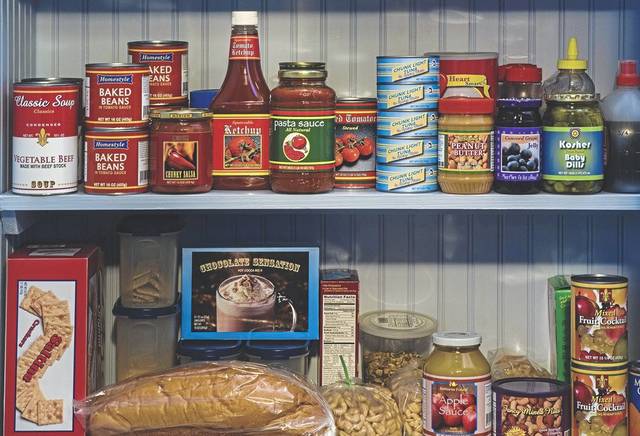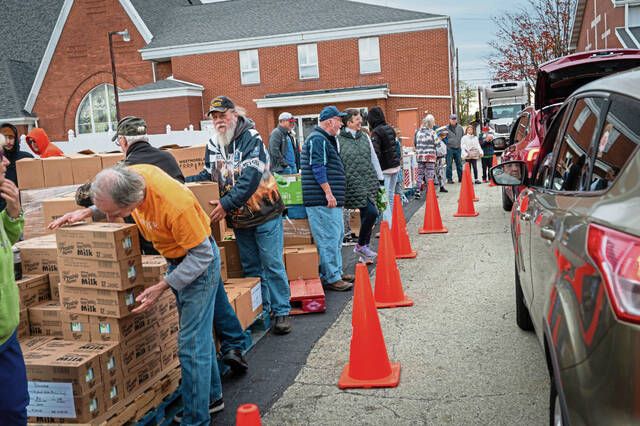Editor’s note: The following text was delivered at a March 30 press conference alongside Sen. Bob Casey, D-Pa.
The American Rescue Plan is powerful.
It makes major improvements to the public food safety net to protect our neighbors from hunger — particularly in boosting food stamp (SNAP) benefits — so that people don’t have to rely on charity to keep their families fed. SNAP’s monthly benefits have long been inadequate, with much more month than benefits. Extending the boost through September for all households means food on the table for millions, while it also translates to profits for food retailers and processors and wages for grocery store workers, truckers, farmers and farm workers.
The rescue plan also addresses another long-standing issue: summer hunger among kids. Finally, all students who receive free and reduced-price school meals will now qualify for an EBT benefit to help their families feed them over the summer.
The rescue plan renews the expansion of unemployment benefits, and enlarges the child tax credit and earned income tax credit — lifting millions out of poverty, cutting nearly in half the number of children in poverty. It is already delivering direct payments to tens of millions of low-income and working-class Americans that will help them pay bills and keep the wolf from the door. Those payments will also provide spending power that can repair the economy as a whole to keep us on track.
Yes, the rescue plan is powerful — in part because it can prove that we as a nation can fight hunger and poverty comprehensively. It puts new tools to work that reduce the dire racial gap in income and wealth and opportunity. And it sharpens the tools that we already know can work.
Those of us in the movement to end hunger have said for decades that success is not about distributing more charitable food — it is about addressing the inequities that create hunger in the first place. It is about building the political will to solve a fixable problem.
The covid-19 pandemic has laid bare the terrible life-and-death consequences of poverty and of racial injustice in our nation. But the pandemic didn’t create those conditions. Before the pandemic began, about 34 million Americans — more than 1 in 10 of us — were living in poverty. And nearly half of Americans weren’t technically below the poverty line, but were only one crisis — an illness, an accident, a lay-off — away from financial catastrophe. Such widespread hardship was also laid bare by the Great Depression nearly 100 years ago, by the social unrest of the 1960s, by mill closings in the 1980s and by the financial crisis of a decade ago. In each crisis we learned a little, but not enough. Now is our chance to put these lessons to work.
Yes, this rescue plan is powerful — but it is temporary. These urgent relief measures are set to expire at the end of the year, or in some cases, even sooner.
When we see that increasing food stamp allotments reduces hunger for the entire month, will we just let that success expire? Once larger child tax credits enable parents to start to build a future for their kids, will we return to old myths about bootstraps? After the boost in unemployment runs out in September, will the job market for working-class people really have living wage jobs for all?
The pandemic has meant that 8 million more Americans are in poverty than were a year ago. But it is up to us — up to our political will — whether the “new normal” will merely be a return to the supposed good old days when “only” 34 million people in this country were poor.
Every day, Just Harvest helps people get the safety-net benefits they need. We help people navigate the complex process of applying for food stamps. The pandemic has closed local offices of the Pennsylvania Department of Human Services to in-person visits, so we are helping more than twice as many people apply as before.
The rescue plan has to work for Harry, and Christine, and Gloria, and the others whose food stamp applications we prepared this past Friday and for the hundreds more we have helped in each of the last several months.
Just Harvest prepares tax returns for low-wage workers in Allegheny County at no charge to make sure they receive the earned income tax credit and child tax credit. We’ve helped 1,136 households so far this tax season, enabling them to share $1.5 million in targeted tax credits. And thanks to the rescue plan, these numbers will grow in the months to come.
My dictionary defines rescue as “to free or save from danger.” We know the dangers of hunger and poverty for children and adults — learning difficulties, worse health, lower productivity, shorter life expectancy. These dangers will persist long after the pandemic. And so our rescue strategy must persist as well.
We’re grateful for Sen. Casey’s commitment over many years on these issues. The senator understands, as we all should, that the crisis of poverty is not new. And that’s why Just Harvest calls on all of our elected officials, government and civic leaders to commit ourselves now to a rescue plan that truly frees all our neighbors from danger. Not a short-term effort to be abandoned until the next crisis, but the foundation for a new way of governing — one that protects the vulnerable, invests in working families, and strives to ensure that all of us can thrive.
Let’s use this moment to summon the political will and the political courage to bring poverty and hardship to an end, once and for all.
Ken Regal is executive director of Just Harvest, a Pittsburgh-based nonprofit.








